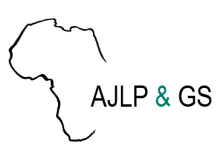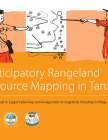/ library resources
Showing items 1 through 9 of 74.Gender gap in ownership of agricultural land is still wide in many developing countries, mainly in favour of men. In some of these countries, both patrilineal and matrilineal systems are practised and recognized by governments.
Secure land and property rights are essential for improving the livelihoods of the poor and ending poverty. Effective and equitable land governance can also contribute to economic development, domestic resource mobilisation and climate change resilience.
Context and background Residing in areas of flood risk informal settlements is more or less normal among low-income households in most cities of the developing countries.
Series of country papers on HIV/AIDS and land in Lesotho, Kenya, South Africa, Malawi, Tanzania, with concluding paper on methodological and conceptual issues.
Wave 2 country infographics in one document. Countries include: Benin, Bolivia, Cambodia, Colombia, Ghana, Indonesia, Jordan, Kenya, Malawi, Mexico, Morocco, Niger, Nigeria, Tanzania, Tunisia, Uganda, United Kingdom and Vietnam
A Field Manual to support planning and management in rangelands including in Village Land Use Planning
Mwongozo wa Uwandani wa kusaidia Kupanga Mpango na Usimamizi wa Nyanda za Malisho ikiwemo kupanga Mpango wa Matumizi Bora ya Ardhi ya Kijiji
Includes trends prospects and policies, biofuel production and land access in Tanzania – laws, policies and procedures, impacts of biofuel investments on land access.
Provides a backdrop of relevant policies and practice; a gender analysis of the policy framework governing land and investments; and recommendations on how to work towards land rights securing and better inclusion in land governance processes for women in Tanzania.
Pagination
Land Library Search
Through our robust search engine, you can search for any item of the over 73,000 highly curated resources in the Land Library.
If you would like to find an overview of what is possible, feel free to peruse the Search Guide.








